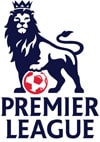Quietly slipped in the arguments promoting the doomed European Super League formation, it was suggested that all EPL big six were on board. Liverpool, Manchester United, Manchester City, Arsenal, Chelsea and Tottenham all signed up for the competition, and 12Bet members were impressed by the possibility of getting more soccer games to bet on.
However, the competition collapsed in many days as European fans voiced their anger because of the sheer arrogance of the plan to sacrifice a genuine tournament for unprecedented financial gains.

The idea of never relegating the founding member clubs was partly based on the presumption that there was an impregnable hierarchy in every major European league. Few can argue that Liverpool, Manchester United, Manchester City and Chelsea are standing at the vanguard of the EPL, but the inclusion of Tottenham and Arsenal in the Super League was more likely based on pedigree than their recent sporting performance.
The EPL clubs were split along a clear line, with teams whose influence and power was needed to make the Super League credible and others that felt they could not afford to be left out. However, the economic effects of the lockdown are shifting the soccer landscape further as some teams exploit the vulnerability of other clubs to reinforce their position.
Is it Time to Abandon or Redefine the “Big Six” Concept?
The lockdown’s financial effects is a moniker that has its roots at the beginning of the EPL when leading clubs in the country came together to create a breakaway league due to lack of money in soccer. The “Big Five”, as fans knew them in the late 80s and early 90s, included Tottenham, Arsenal, Liverpool, Everton and Manchester United.
The representatives of this quintet at an infamous secret dinner together with the TV executive Greg Dyke in October 1990, leading to the creation of the EPL in less than two years. The premier league grew into a global phenomenon in the following years, with the Champions League expanding to feature four best teams from three top leagues by 1999. However, that didn’t feature English teams until EPL teams were good enough in 2002.
Top 6
Considering the revenues offered from the European competition, EPL’s top four teams had a significant claim of being among the top four every year. These big four spots have been occupied by Manchester City, Chelsea, Tottenham, Arsenal, Liverpool and Manchester United each year since then, besides Leicester’s incredible title success in 2016, Everton’s fourth-place claim in 2005 and Newcastle’s third-place finish in 2003.
Sheikh Mansour’s Man City and Roman Abramovich Manchester City managed to crash that order with an expensive takeover in 2003 and 2008, booking a seat on top of the table with their owners now placed well to offset the lockdown’s impact on finances. The effect on revenues due to the lockdown prompted UEFA to relax its rules of Financial Fair Play, allowing the 2021 and 2020 financial year to be reviewed as a single period with the average combined debts of the two years.
The wiggle room brought by these measures enabled Manchester City to spend around 100 million euros signing Aston Villa’s Jack Grealish while pursuing Tottenham’s Captain Harry Kane. Chelsea also smashed their record while signing Internazionale’s Romelo Lukaku for £97.5 million. The Serie A team had to undertake a fire sale due to the collapse in revenues over the last year. That was despite winning the league for their first time in the previous decade.
United
Manchester United’s position as one of the top revenue generators in the soccer world is partly founded on ferocious commercial capabilities that survived well, enabling them to sign Jadon Sancho for £73 million and £34 million on Raphael Varane. However, Liverpool is yet to exploit the market in a meaningful way besides the £36 million they spent acquiring RB Leipzig’s Ibrahim Konate.
Liverpool has already committed considerable sums to wages and long-term contract renewals for Virgil van Dijk, Trent Alexander-Arnold, Allison and Fabinho, with potentially Mohamed Salah’s extension. As such, Tottenham, Manchester United, Chelsea and Manchester City look well-placed to challenge each other for the 2021-2022 EPL title, while the other two clubs in the “Big Six” will stave off decline.
Tottenham will keep fighting to keep Kane, with coach Nuno Espirito looking to stop the decline that started towards the end of Mauricio Pochettino’s era, which Mourinho couldn’t prevent. Spurs were among the teams hit the hardest by the harsh financial times, and it became the first to benefit from the government’s scheme that gave them a loan of £175 million.
City
Within the group, Chelsea and Manchester City were among the clubs that embraced the opportunity to strengthen themselves using this slump using their robust financial reserves. However, Arsenal and Tottenham struggled to remain afloat, with the Gunners facing a season without European Soccer.
Premier League’s financial power has created envy among different leading teams in other countries, with the distribution of TV revenues continuing to help empower teams like Leicester and West Ham. The two teams hope to improve the fifth and sixth positions they landed last season, with Everton renewing their hopes for the top six under coach Rafa Benitez. However, it will be challenging to break into the top four with Chelsea, Manchester City, Liverpool and Manchester United tightening their grip this summer.